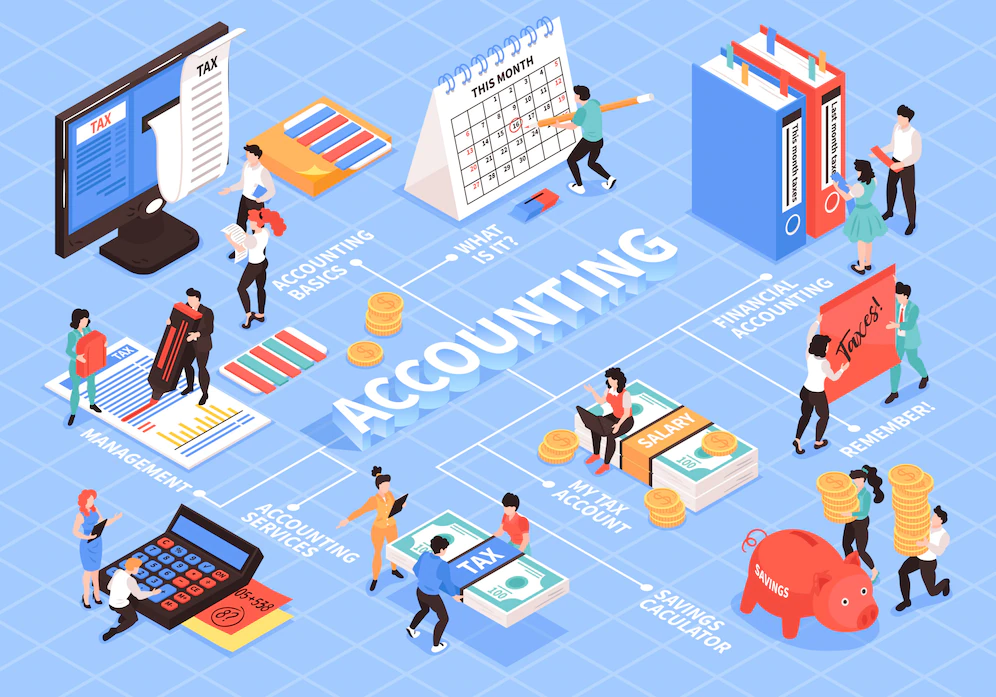The Nine amazing benefits of lease accounting software
- 1 9 Benefits of lease accounting software
- 1.1 Improved Accuracy and Efficiency
- 1.2 Compliance with Lease Accounting Standards
- 1.3 Centralized Lease Data
- 1.4 Cost Savings
- 1.5 Improved Lease Management
- 1.6 Better Reporting and Analytics
- 1.7 Improved Collaboration
- 1.8 Increased Security
- 1.9 Scalability and Flexibility
- 2 Conclusion
Lease accounting can be a complex and time-consuming task for businesses. With the introduction of new lease accounting standards, such as ASC 842 and IFRS 16, the need for accurate lease accounting has become more critical than ever. This is where lease accounting software comes in.
This blog will explore the nine excellent benefits of lease accounting software, from improved accuracy and efficiency to increased security and scalability.
9 Benefits of lease accounting software
Without further ado, let’s explore those benefits in detail.
Improved Accuracy and Efficiency
Manual lease accounting processes are prone to errors and inefficiencies. With lease accounting software, businesses can reduce the risk of errors and streamline their lease accounting processes. This is achieved by automating lease classification, amortization, and journal entries.
Lease accounting software can also improve accuracy by ensuring that lease data is entered correctly and consistently, preventing mistakes that can lead to financial and legal consequences.
By automating lease accounting tasks, businesses can also free up time for their finance teams to focus on more strategic activities that can help drive growth and profitability.
Compliance with Lease Accounting Standards
Lease accounting software can help businesses comply with lease accounting standards, such as ASC 842 and IFRS 16. These standards require companies to account for all lease agreements on their balance sheets, which can be challenging without the right tools.
With lease accounting software, businesses can ensure that all lease data is entered correctly and that all lease accounting rules are followed, including those specified by IFRS 16 lease accounting.
This can help businesses avoid financial and legal consequences and stay on top of their lease accounting obligations. Lease accounting software also generates IFRS 16-compliant reports, ensuring that companies meet the requirements of this new accounting standard through all financial transactions.
Centralized Lease Data
One key benefit of lease accounting software is that it can centralize lease data. This means that all lease information is stored in one place, making it easy to access and manage. With a centralized lease database, businesses can be more transparent about their lease portfolio and make better decisions.
Having all lease data in one place also helps businesses stay organized while reducing the risk of missing critical dates or deadlines. This is especially important for companies that have large or complex lease portfolios.
With lease accounting software, businesses can quickly view and track important lease information such as lease terms, renewal options, and lease payments.
Cost Savings
With manual lease accounting processes, businesses may need to dedicate significant time and resources to lease accounting. This can be especially challenging for companies with large or complex lease portfolios.
Lease accounting software can help businesses save money by automating lease accounting tasks and reducing labour costs.
By automating lease accounting tasks such as lease classification and amortization, businesses can reduce the time and resources needed for lease accounting. This can free up finance teams to focus on more strategic activities that can help drive growth and profitability.
Improved Lease Management
Lease accounting software can improve lease management by giving businesses better insights into their leases. With lease accounting software, companies can quickly view important lease information such as lease terms, renewal options, and lease payments. This can help businesses make better-informed decisions and manage their leases more effectively.
Lease accounting software can also provide businesses with lease tracking, document management, and reporting tools. This can help companies to stay organized and reduce the risk of missing critical dates or payment deadlines.
Better Reporting and Analytics
Lease accounting software can improve reporting and analytics by giving businesses real-time insights into their lease portfolio. With it, companies can generate custom reports and analyze key lease metrics such as lease terms, renewal options, and lease payments.
As data-driven decisions help businesses grow, companies can respond to changes in their lease portfolio and adjust their strategy as needed.
Improved Collaboration
Lease accounting software helps improve collaboration by facilitating communication between departments and stakeholders. With lease accounting software, finance teams can quickly share lease information with other departments, such as legal, procurement, and operations.
This can help ensure that all stakeholders are on the same page and that lease accounting is done efficiently and accurately.
Lease accounting software can also improve collaboration with external stakeholders such as auditors and lessors. By providing easy access to lease data and reports anytime, businesses can quickly respond to requests from external stakeholders.
Increased Security
Lease accounting software can increase security by protecting sensitive lease information from unauthorized access. With manual lease accounting processes, lease data may be scattered across different systems and spreadsheets, increasing the risk of data breaches.
Lease accounting software stores lease data in centralized and secure databases to maintain the confidentiality and integrity of their lease data.
This can help prevent data breaches and ensure lease information is only accessible to authorized personnel. Moreover, LAS also provides accurate audit trails and other security features to help businesses predict future trends and make changes accordingly.
Scalability and Flexibility
Lease accounting software is scalable and flexible, essential for businesses with changing dynamics. With it, companies can add new leases, update existing lease terms, and generate new reports as needed.
This can help businesses adapt to changing lease accounting requirements and ensure that their lease accounting processes remain efficient and accurate.
Conclusion
Lease accounting software has many benefits for businesses of all sizes. From improved accuracy and efficiency to increased security and flexibility, lease accounting software can help companies streamline their lease accounting processes and make better-informed decisions.
Consider investing in lease accounting software if you want to improve your lease accounting processes.

















